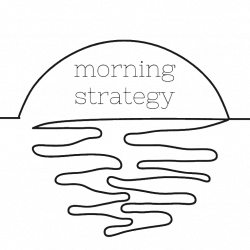
The Covid-19 economy has reduced quality of life for many impacted by the pandemic. Individuals struggling with food security and mental health will increase. Innovative digital solutions can help collect data and apply data science to provide guidance on how best to manage the crisis with the resources in your community using proactive strategies that cost less and deliver better outcomes.
The Institute for Smarter Government can show you how.
Food Banks Canada monitors hunger across Canada each year with data collected from 4,934 organizations. There were over 1 million visits to Canadian foodbanks in 2019 delivering over 5.5 million meals. This was an increase of 47% over 2018. The pandemic will accelerate visits to the foodbank in 2020 and 2021 with an increase in mental health concerns at the same time.
In 2019, 57% of those requiring help with food were on social assistance, 48% came from a single adult household. One in eight were unemployed.
When Food Banks Canada annual survey HungerCount 2019 asked agencies what their clients’ main reason was for accessing a food bank, clients shared that their social assistance or benefits were too low. They had low or delayed wages. Some had lost their job and were unemployed or did not have enough hours. These four areas of concern accounted for 80% of those individuals requiring assistance from a food bank.
That was in 2019. With Covid in 2020 and now 2021, the economy will hit those living on the edge the hardest. Many families and single adults have less household income. Unemployment and reduced hours with lower pay will greatly accelerate the number of single adults and families arriving at the food bank in 2020/2021.
Foodbanks HungerCount 2019
There are over 1.1 million Canadians receiving welfare and over 2 million if you include those with disabilities and mental health issues. The Canada Community Health Survey shows food insecurity has a statistically significant relationship with mental health variables.
The connection between food insecurity and mental health is greater with single person households now accounting for 48% of all households served. One in three of the single adults lives in poverty. Since 2016, seniors over 65 mostly with fixed incomes requiring an expansive array of expensive medications have increased visits to the food bank by nearly 30%.
Close to one in five single adults experiences food insecurity and many of those need support from a food bank to make ends meet. Many within this group have mental health issues that are exacerbated by poverty and low income. Many have mental health issues that go untreated for lack of supports available to them, are stuck in a cycle of inadequate social assistance or disability-related supports, or have lost a job and have nowhere to turn for new training and education programs to re-enter the workforce.
When the rent and wage subsidies transition back to the pre-covid economy, the need for food bank support will increase. Mental health and a range of other human service issues will surge.
Food Banks Canada will conduct research March 2021, across the nation to collect data from each community. Short term solutions will help address the immediate need for food while longer term solutions will focus on policy and try to address the question why. #BellLetsTalk offers some great Covid 19 resources to help everyone get through this together.
Canada is now seeing over 8,000 new case of the coronavirus each day. This is four times the rate when the pandemic started in 2020. Vaccines will help reduce transmission. This will take time.
Each community needs to understand how best to serve their population with the resources at hand. Innovative digital solutions can help begin collecting data in a client centric manner that makes it easier to apply analytics and create prescriptive programs that deliver better outcomes for less.
The Canada Healthy Communities Initiative makes it possible for every community to apply for Infrastructure Canada funding starting January 2021.
Be smart and get ahead of the Covid crisis. #Buildbackbetter Find out how to submit your proposal for funding at February webinar. Details will be posted shortly.





.png)



